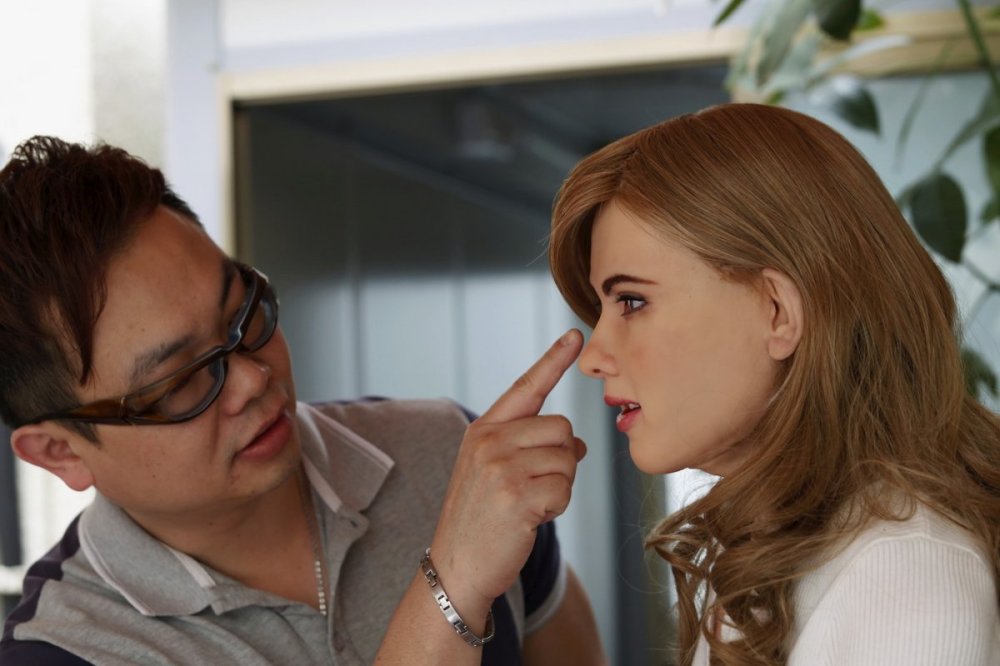“Enjoy your com-FORT-able stay,” says a robot front-desk clerk at Japan’s Robot Hotel. Do you thank the robot for its awkward salutation? Or maybe you hesitate for a moment before shuffling off in silence. If our digital screens are separating us from human interaction, you better believe AI will further tear that tenuous social fabric. On the other hand, AI could also help free us up for more time spent with loved ones—kind of like how Social Media has helped us keep in touch with friends we wouldn’t normally keep in touch with. But what does that mean for our jobs?
Pink Slip
Let’s face it; humans aren’t the most efficient workers. We’re moody, unpredictable and we have to make time for silly things like eating and sleeping. But robots don’t. Besides the occasional software patch or hardware update, machines and programs can pretty much work at maximum capacity, 24/7.
Because of this, 57% of workers are currently at risk of automation according to a recent study by Oxford Martin School and Citi. Another study found that roughly half of all U.S. jobs are at risk of being automated within the next 20 years. It shouldn’t surprise you that customer service and manufacturing jobs are among the most at risk. If the internet was the first wave of disruption for customer service, AI & robotics will be the 2nd (and likely final) wave. Just as the internet rendered the role of the travel agent nearly obsolete, so too will AI wipe out jobs for telemarketers, receptionists, and even retail salespersons.
Jurica Dujmović counterbalances this argument by suggesting that AI is not replacing jobs, but simply augmenting and shifting them. The example he gives is when blacksmiths lost their horseshoe-making jobs due to the proliferation of the automobile in 1908. He writes:
“For every blacksmith that did lose his horseshoe-making job, a new workplace was opened for a mechanic and his apprentices.”
And then of course as automobiles became more sophisticated (again, because of advancements in technology), it further required the maintenance of a professional auto mechanic rather than your weekend do-it-yourselfer. So perhaps the proliferation of artificially intelligent applications and robotics will foster a near net-zero job loss instead. After all, someone’s got to take care of all these robots, right?
Ethical Boundaries
Recently, a Chinese inventor built a $50,000 robot replica of Scarlet Johansson to fulfill a childhood dream. This raises more than a few ethical red flags. If one cannot garner the attention and company of another human being, is it OK to simply make a second version of that person to appease latent desires? Think for a moment how you would feel if a stranger built and interacted with a robotic replica of yourself. Creepy, right? Perhaps because lifelike robotics is still coming into fruition, the ethical guidelines are ‘lost in translation’ (had to throw my favorite Scarlet movie in here somewhere…). Nonetheless, we’re still nowhere near the point where a Scarlet Johansson robot can play her part in the upcoming Ghost in the Shell movie adaptation—or a Kusanagi robot for that matter—but perhaps we’re not far off.

[Image from REUTERS/Bobby Yip]
Drum Machines Have No Soul
A drummer in my brother’s reggae band had this sticker on the outside of his bass drum that read “Drum Machines Have No Soul.” Drummers are supposed to have near perfect rhythm; near-perfect being key. A perfect drum beat, like the kind you get when you program a drum machine, coupled with identical dynamic drum hits make it sound mechanical. It makes it sound, well, robotic. In some genres of music this is a desired effect (high-five if you listen to Kraftwerk). But most genres—reggae especially—do not benefit from that mechanical, robotic sound.
Extrapolated further, we can say it is the minor imperfections and subtle flaws of the human operator that imbue us with something special, something warm and alive—something analogue. I supposed this imperfection can be summed up as our own psyche, or, our own soul, of which no amount of code can completely replicate.
Can there really be a program for something so nuanced and fragile as the human self? Can we ever experience an ‘I-Thou’ relationship with an artificially intelligent design, or will it forever be an ‘It’. I suppose that would depend on the person (and the robot). No matter how life-like a robot’s appearance may be, I remain convinced a robot’s programmed personality will leave us wandering through the uncanny valley—at least for the time being.
This post originally appeared on TechCrunch
When I envision the future, it’s with the hopes of an ordinary person. I hope for smart cars that prevent bad drivers from killing and maiming others. Smart diagnostics programs to supplement the overtired doctors and nurses. I hope the next generation of pet chips will tell my phone where the cat wandered off to. On a larger scale, I would like to see AI run some things, because humans can’t. They make a mess wherever they go. Too many ruled by emotion, not enough by logic. As a species, we’re pretty stuck up. To study the history of mankind is to realize that humans suck, they have always sucked, and they will most likely continue to suck far into the future. I say, let AI take over. It might just save the earth.
LikeLiked by 1 person